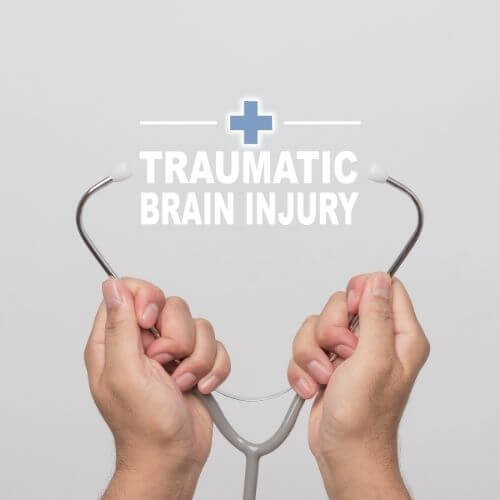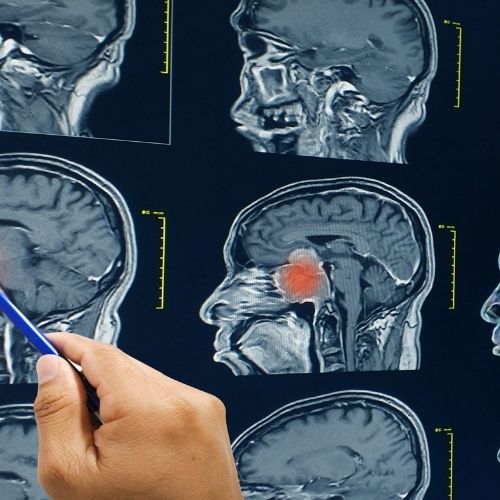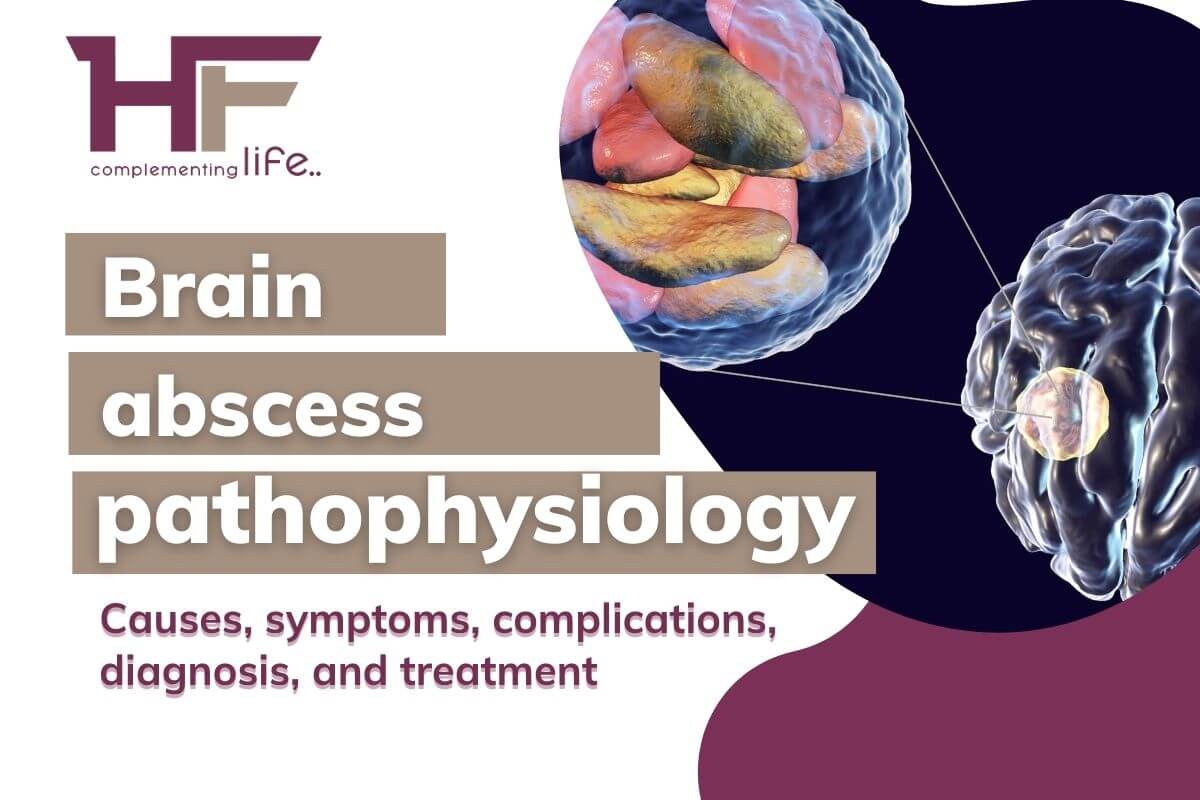CContents
About brain abscess:
A brain abscess or cerebral abscess is a pus-filled swelling of infected materials in the brain due to an infection or trauma. In recent years, it was “invariably fatal” but researchers have stated that its early diagnosis and treatment have increased the chances of survival.

Its effects may vary and depend upon the size of the abscess and its formation in the area of the brain. It also occurs when any bacteria or fungi enter into the brain tissue due to infection or brain injury. It caused the brain to well which ultimately put pressure on brain tissue. Abscess also alters or blocks the blood from flowing to various parts of the brain.
How it enters:
The infection enters the brain through the blood-brain barrier and causes infection. This only happens when inflammation damages the blood-brain barrier and leads to a gap.
Main routes through which the infection enters:
- Through blood from infection in other body parts
- Spread of infection from a near-site like an ear
- Through traumatic injury

A person who has a weakened infection has a high risk of developing brain abscess and if they have HIV, AIDS, received chemotherapy, infants under the age of 6 months, using steroids for a longer time, organ transplant and using immunosuppressant drugs.
By direct contagion:
The infection spreads through the nearby area and if it starts in the skull through the nose or ear then it can spread to the brain.
This can trigger infections like:
- Otitis media (infection in the middle ear)
- Sinusitis
- Mastoiditis (infection in the bone behind the ear)
- By direct trauma:
- Brain abscess is also caused due to trauma like a penetrating brain injury or a neurological surgery.
Causes of brain abscess:
Three main causes can develop brain abscess:
Infection in another part of the skull such as sinusitis, dental abscess, infection in the ear, which spreads directly into the parts of the brain.
Infection in another part of the body like an infection that causes pneumonia spreads into the brain through the blood.

Trauma is like a severe head injury that opens up the skull through cracks and allows the fungi or bacteria to enter the brain.
Symptoms of brain abscess:
Symptoms develop slowly over several weeks but come suddenly. Symptoms are:
- Headache is located in a single section of the head and is often severe but cannot be relieved with pain killers.
- Irritability or confusion
- Muscle weakness or loss of muscle functioning
- Paralysis on one side of the body
- Stiffness in neck
- Feeling sick
- Vision changes like greying of vision, blurring of vision, double vision
- Decreased sensation
- Fever and chills
- Vomiting
In small babes and young children, the symptoms are usually similar. The soft spot on the baby’s head is called fontanelle swells or bulges. Other symptoms are:
- High pitched crying
- Projectile vomiting
- Limbs spasticity
Diagnosis:
For diagnosing brain abscess proper signs and symptoms are evaluated and ask about histories.
Diagnosis will be more exact through tests which include:
Blood tests: To check for white blood level which indicates infection
Image scanning like CT scan or MRI which rule out an abscess on one or more spots.
CT-guided aspiration is done with needle biopsy by taking a sample of pus for analysis.

Complications:
Complications of brain abscess are:
- In a reoccurring abscess consults immediately with the doctor because it is more common in patients who have week immunity or suffering from any heart disease.
- Brain damage from mild to moderate improves with time but it is permanent damage. But this damage is more at risk if the treatment and diagnosis are delayed.
- Epilepsy is another complication in which a person repeated seizures.
- Meningitis is a life-threatening infection of the membrane and it requires urgent treatment. This disease is more common in children.
Prevention:
If there is an infection elsewhere in the body, then it should be treated properly which helps to prevent a cerebral abscess. If the doctor has suggested taking antibiotics that certain procedures like dental work then you have to follow these directions.
Treatment:
Treatment regarded in it is a medical emergency. Swelling due to abscess disrupts blood as well as oxygen supply to the brain. It also develops a risk of abscess bursting.
If it is left untreated, permanent damage is caused o the brain and it can be fatal.
Treatment includes a combination of medicines that may be either antibiotics or antifungals.
Surgery is also done in chronic cases in which there is draining of pus through a hole in the skull called as simple aspiration or open the skull and removes abscess entirely called as craniotomy.
Conclusion:
A brain abscess is also called a cerebral abscess and is a pus-filled swelling of infected materials in the brain due to an infection or trauma. Its effects may vary and also depends upon the size of the abscess. It also happens if any bacteria or fungi enter into the brain tissue due to infection or brain injury.
Three main causes develop brain abscesses such as infection in another part of the skull such as sinusitis. Infection in another part of the body like pneumonia spreads into the brain through the blood. The severe head injury opens up the skull through cracks and allows the fungi or bacteria to enter the brain.
Symptoms include headache, irritability, muscle weakness, paralysis on one side of the body, stiffness in the neck region, feeling sick, decreased sensation, etc. Diagnosis is done through blood tests, CT scans, MRI, and CT-guided aspiration. Its treatment includes medicines like antibiotics or antifungals. In chronic cases, surgery is done in which there is draining of pus through a hole. This abscess causes the brain to swell and puts harmful pressure on brain tissue. So it needs proper emergency treatment.










Comments